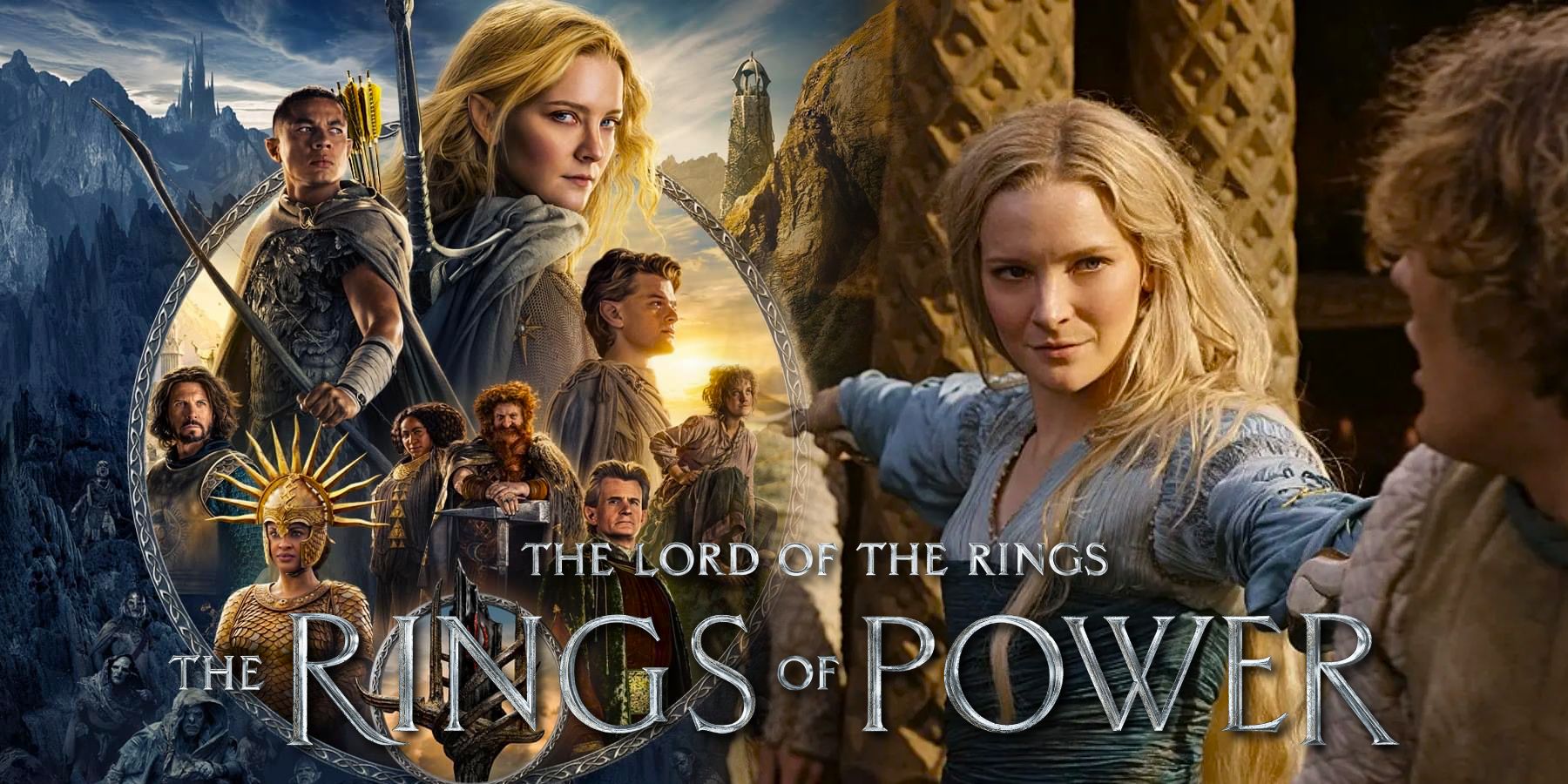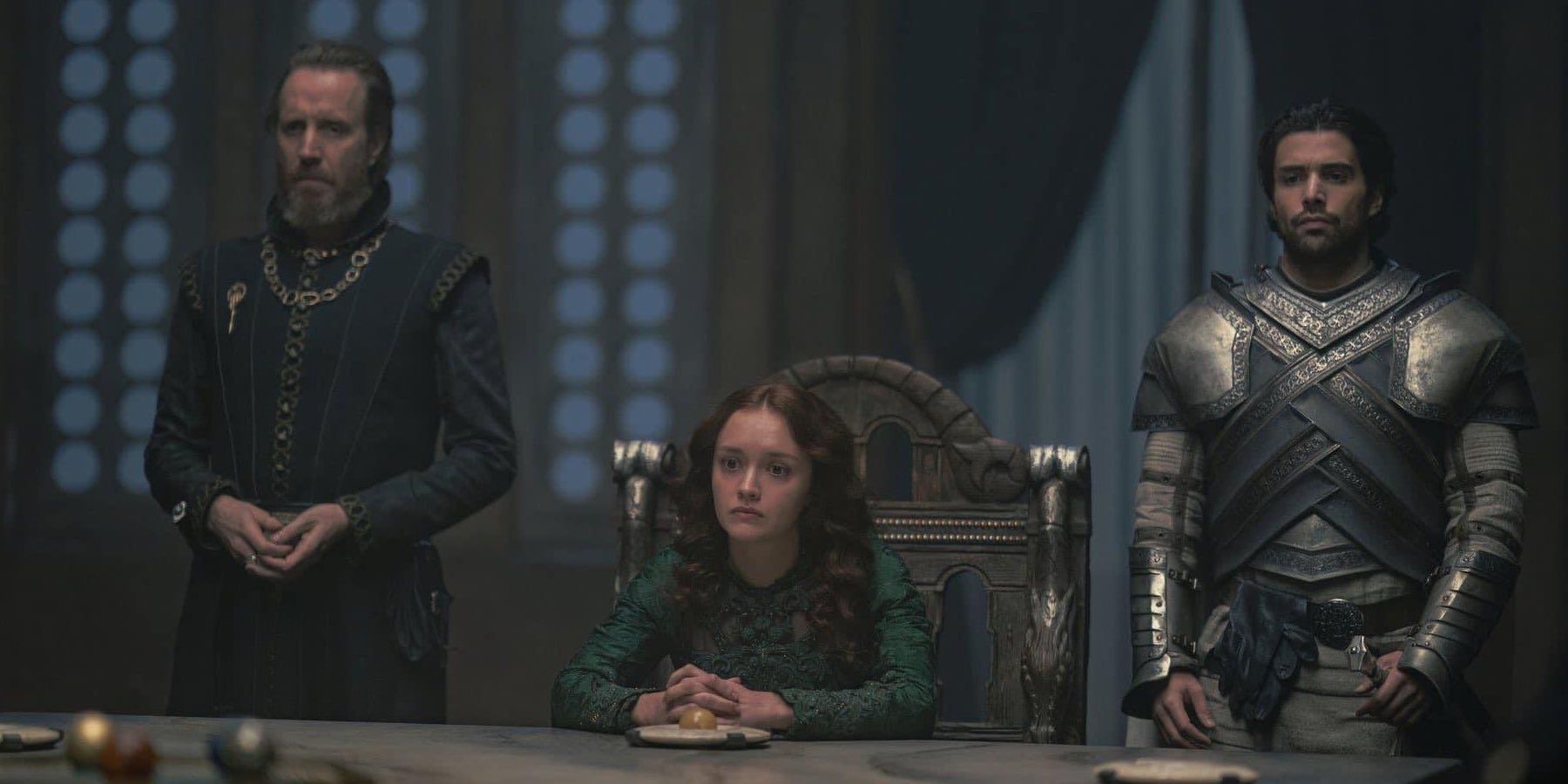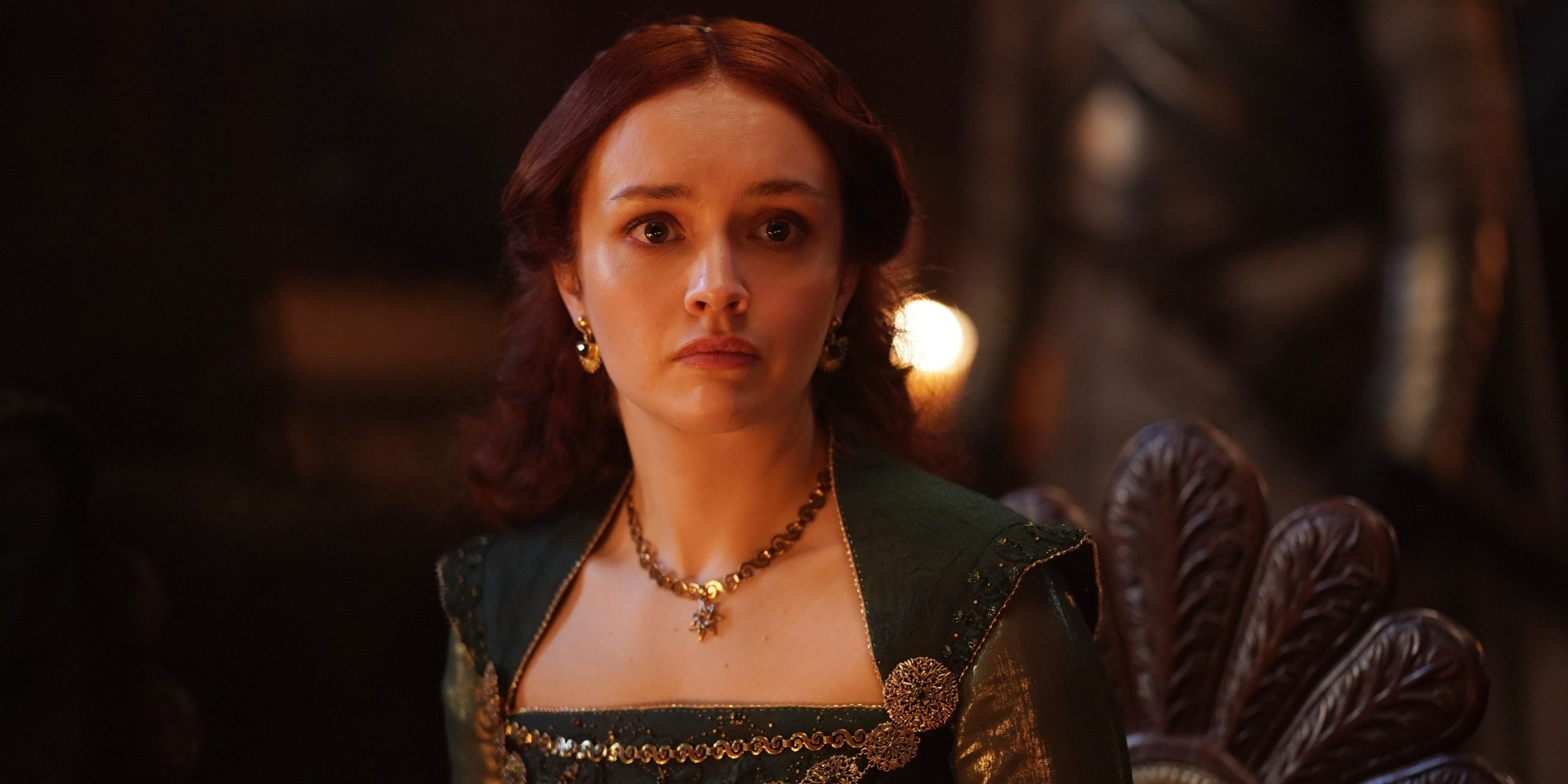House of the Dragon may be an ensemble, but two characters are undoubtedly at the heart of the story: Rhaenyra (played first by Milly Alcock, then Emma D'Arcy) and Alicent (Emily Carey, Olivia Cooke). Olivia Cooke, who portrays a post-time jump Alicent, recently spoke about the role in light of the finale and especially spoke about comparisons between the character and Game of Thrones' Cersei Lannister (Lena Headey).
Alicent's character was greatly expanded in House of the Dragon. In George R.R. Martin's source material, Fire & Blood, her character serves as one of the driving forces behind the Dance of the Dragons. Portrayed as spiteful and not very sympathetic, she fades into the background as the civil war begins in proper. The show instead chose to make Alicent a product of her father, Otto (Rhys Ifans), becoming increasingly embittered by the society she exists in while simultaneously upholding its values to the end. It was a change that House of the Dragon made that worked.
In an interview with Variety, Cooke discussed Alicent and comparisons between her and Cersei Lannister. “In online discourse, it tends to be more black and white of who’s the hero and the villain. I do think they’re really different, though, and I limited the amount of wine that I drank in scenes because I didn’t want the comparison to be too transparent. What Lena Headey did with Cersei was so brilliant," she said. "But I think Alicent is run on anxiety and self-doubt a lot more, and I don’t think Cersei has that at all. She completely believes in every blow she strikes. I don’t think Alicent has that at all. She’s been so beaten by the patriarchal system she’s in, by her children, by trying to endlessly make things right and to walk such a narrow, straight line.” She stated that Cersei was a much more confident, formidable figure, whereas Cooke says Alicent is portrayed in House of the Dragon as quite unsure of herself.
Cooke also spoke about the book page Alicent sent off to Rhaenyra in the House of the Dragon season finale, and whether that was a genuine attempt at reconciliation or a machination of hers to manipulate Rhaenyra's sympathies. Cooke says, “I don’t think it was a manipulation at all. I really think she is trying to do whatever she can to smooth over the craters that are about to ensue. She wants as little bloodshed as possible. I do think that’s an olive branch, not manipulation whatsoever. But it’s misplaced, and it’s implemented by panic rather than straightforward thinking. I don’t think she would realize how much of an insult that would be.” With regards to holding on to the page, Cooke says, “I can imagine Alicent being someone who has a little box where she can find comfort in little treasures of when she used to have a little bit more autonomy than she does now.”
Cooke's interview is illuminating in several ways. Her statement that the page Alicent sent to Rhaenyra could be interpreted as an insult is a bit surprising, as Rhaenyra appears to be touched by the gesture. But it can also be interpreted in a different light, admittedly: the last shred of connectivity between Rhaenyra and Alicent being returned. Notably, Rhaenyra is not so moved that she answers right away, and instead the unity of the realm (and The Prince That Was Promised prophecy and his Song of Ice and Fire) is a greater concern for her decision-making.
Alicent's portrayal in House of the Dragon is also bolstered by Cooke. Her exploration of the character is deep, and she makes meaningful observations about the character and explores how different she is from pre-existing characters like Cersei Lannister in subtle ways. Cooke's decision to limit Alicent's drinking in order to differentiate the character from Cersei, for example, is a small touch, but it does speak volumes about the differences in their characters. Whereas Cersei is all about indulgence, Alicent is about restraint and repression of her desires to the point that she turns that repression outwards and tries to dictate what others do.
House of the Dragon is streaming on HBO Max.
Source: Variety





